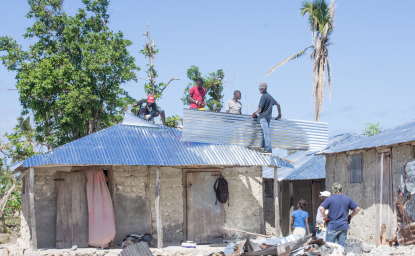Wilson Center Scholar John Sewell Publishes Action Plan for Ending Poverty
JUNE 2007—Briefing Paper Offers Comprehensive Strategy for U.S. Policymakers
JUNE 2007—Briefing Paper Offers Comprehensive Strategy for U.S. Policymakers
Almost 3 billion people—half the world's population—currently live on less than $2 per day, according to the World Bank. Eliminating this deep poverty is a moral issue, but it is also an instrumental one, writes John W. Sewell in The Realpolitik of Ending Poverty: An Action Plan for U.S. Foreign Policy. The alleviation of poverty would not only help the world's poor, he argues, but could also benefit U.S. economic and political interests in many areas, including anti-terrorism efforts, democracy, human health, the environment, and trade.
Sewell writes that ending poverty will require much more than monetary aid. To this end, he outlines a five-part agenda for U.S. foreign policy:
Sewell, an expert in international trade and development, is a senior scholar at the Woodrow Wilson Center and the former president of the Overseas Development Council.
For hard copies of The Realpolitik of Ending Poverty, write to ECSP.
You can find related news, events, and links in the See Also box to the right.

The Environmental Change and Security Program (ECSP) explores the connections between environmental change, health, and population dynamics and their links to conflict, human insecurity, and foreign policy. Read more



